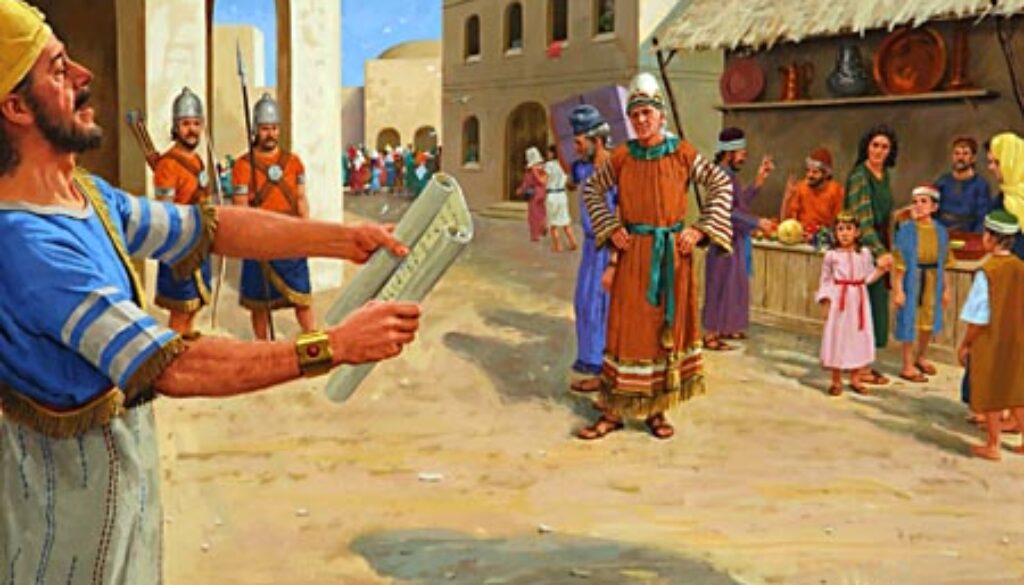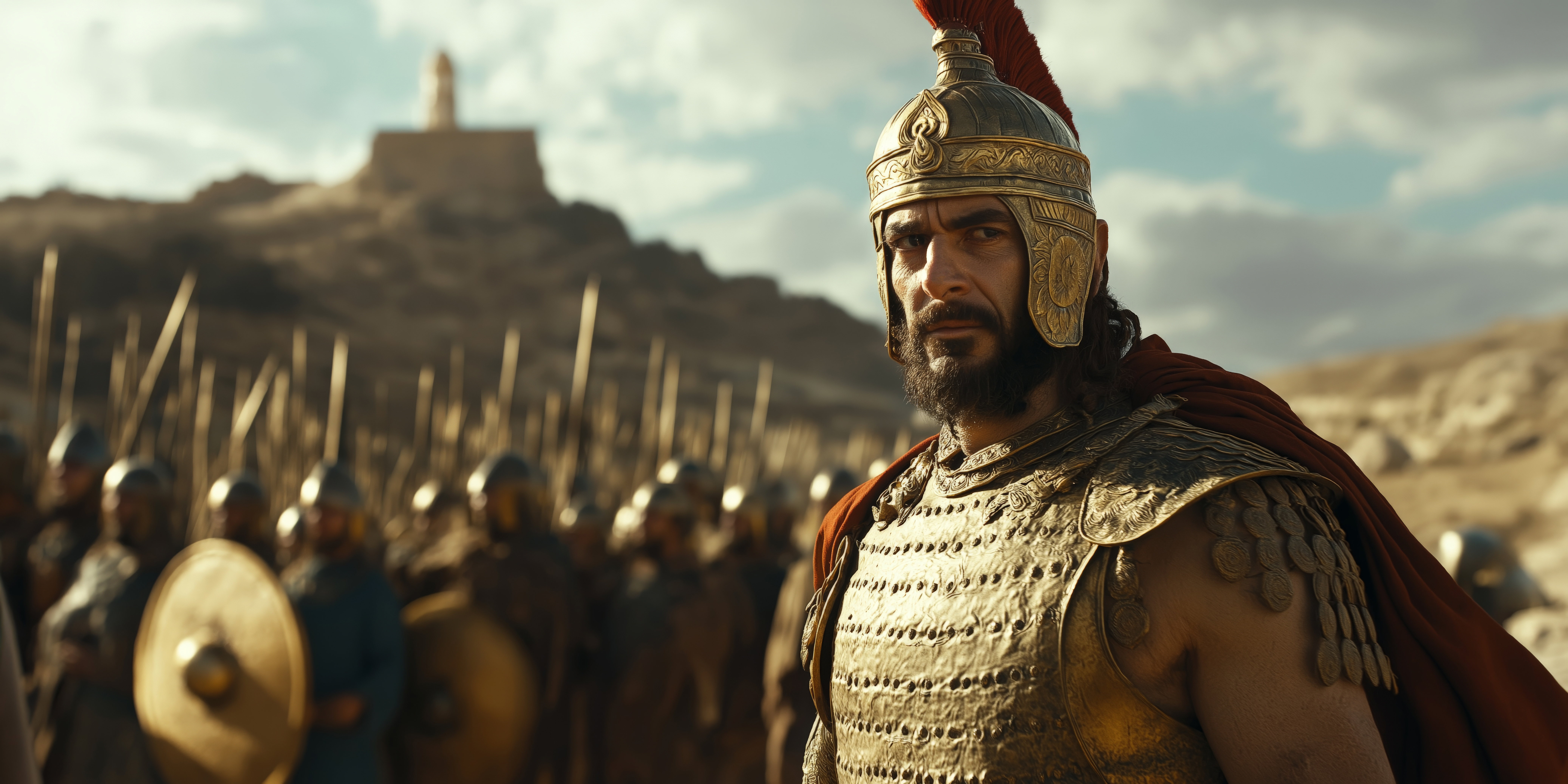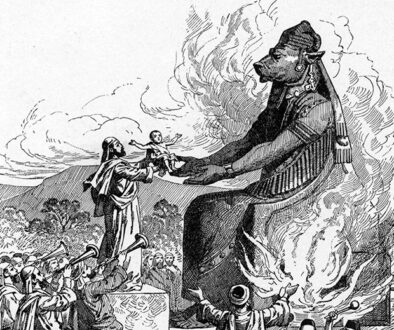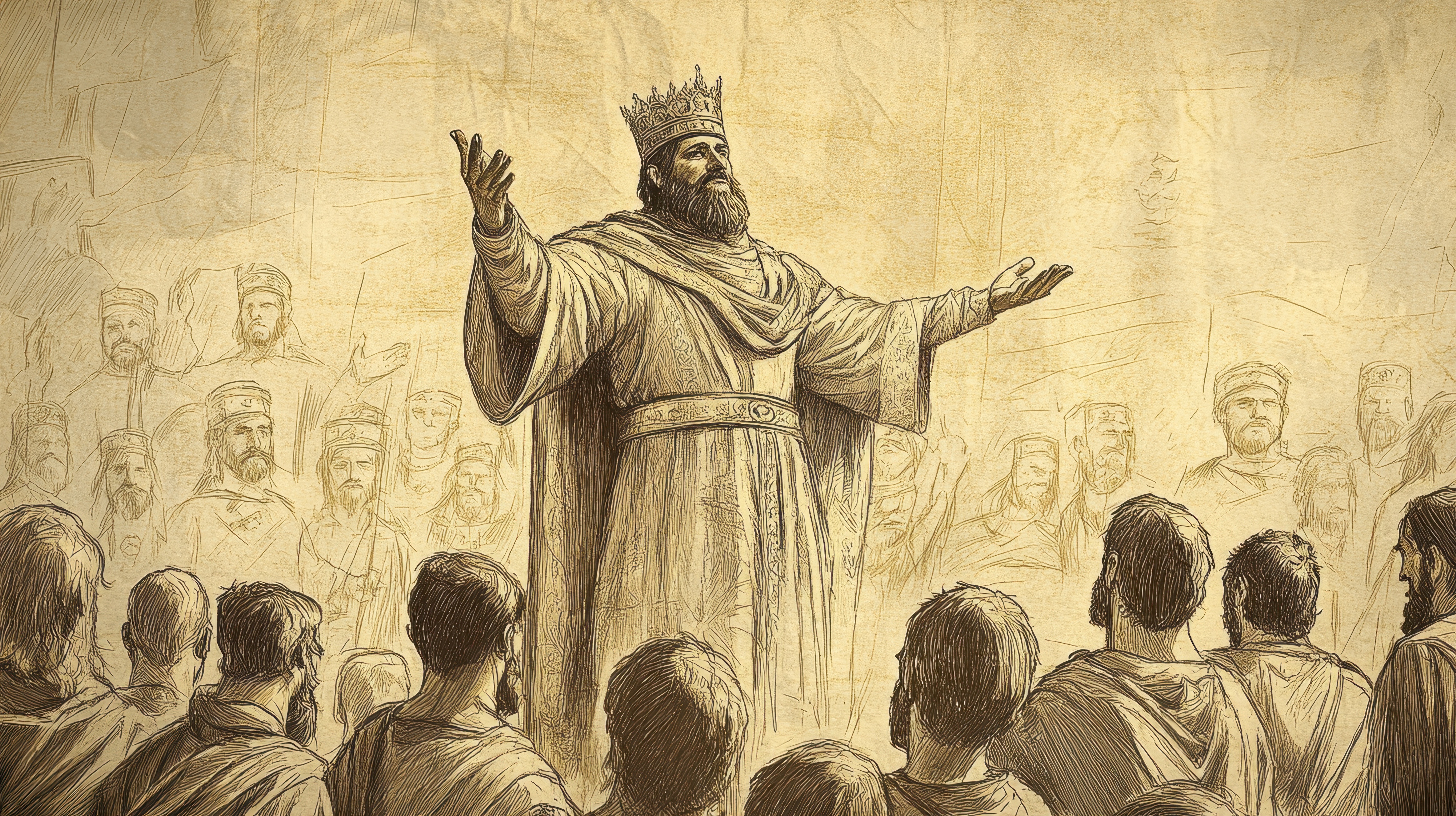2 Chronicles 30:1-27 Celebration
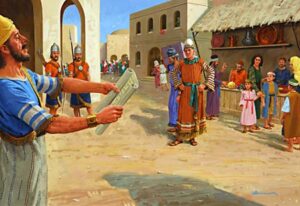
Now that Judah has returned to the Lord, Hezekiah wants to invite whoever remains in Israel to do the same. He sends out an invitation to the Passover celebration.
Four months into Hezekiah’s first year on the throne he had the Temple cleansed by the Levites. The people now have access once again to their God. But Hezekiah is not done yet drawing the people to the Lord. He wants ALL Israel to be reconciled to God. He also knows that there are things that have been LONG neglected with regards to the Lord that must be addressed.
God commanded His people to commemorate specific events in their past with feasts, celebrations and sacrifices. One of the holiest of these events was the observance of Passover. Hezekiah wanted to celebrate Passover. And he wanted ALL of Israel to join him. But there were a few problems that had to be solved first.
When the Temple was rededicated, there was more work to be done than the priests who “had consecrated themselves” (2 Chronicles 29:34b) could handle. We were told that the Levites “were more upright in heart than the priests in consecrating themselves” (2 Chronicles 29:34c) than the priests were so they pitched in and helped out that day. The Levites didn’t offer the sacrifices but instead flayed the animals in preparation for the sacrifice. This lack in the number of consecrated priests still existed when Hezekiah proposed observance of the Passover.
I want to stop here for a moment and consider this issue. When the Temple was rededicated there was a LOT of work to be done by the priests that day. The Levites had already consecrated themselves before beginning the work on the Temple itself. But the priests apparently didn’t all consider it necessary to be ceremonially clean. They figured the number on hand would do. And it possibly could have, on a normal day. It sounds like they were ‘running on a skeleton crew.’ Just enough for the required daily needs and no more.
We are not told how long after the reopening of the Temple it was before Hezekiah asked that Passover be reinstated. It could have been the next day or a year down the road. However long it was, the priests still hadn’t considered it important to have a large number of themselves consecrated at the same time. Hezekiah’s desire to reinstate Passover most likely came very close to the actual day. There was NO WAY the current number of consecrated priests could handle the volume of sacrifices such an event required. Instead of abandoning the idea, allowing unclean priests, or limiting the number of participants, the people agreed to delay the Passover for a month. This allowed the priests’ time enough to complete the rituals required of them. This allowed the people of Judah to make their way to Jerusalem and also allowed Hezekiah time to ‘invite the neighbors.’
Hezekiah is inviting all those who were left behind in the land after Assyria conquered Israel. This had taken place about five years before Hezekiah took the throne. He was reaching out to a people who had watched as their loved ones were taken into captivity.
Hezekiah sends out formal invitations throughout the land of Israel. He writes personal letters to the tribes of Ephraim and Manasseh. IF it has been some time since Hezekiah took the throne, there has been plenty of proof as to God’s favor on Judah. Those in Israel should have been able to see the difference returning to the Lord made for their brothers. IF it hasn’t been very long, those in Israel would be considering what their conquerors say if they accepted Hezekiah’s invitation.
The messengers that Hezekiah brought his plea to ALL Israel. “O people of Israel, return to the Lord, the God of Abraham, Isaac, and Israel, that He may turn again to the remnant of you who have escaped from the hand of the kings of Assyria” (verse 6b)… “For the Lord your God is gracious and merciful and will not turn away His face from you, IF you return to Him” (verse 9b). A heartfelt plea to the people, with a good heaping of guilt with a call to repentance. I skipped over that part but Hezekiah didn’t.
Most of the people laughed at the messengers and the message. “We have NOTHING to celebrate! Besides, what has God done for us or Hezekiah done for us for that matter?” “But they laughed them to scorn and mocked them” (verse 10b). From the results of the messengers, it didn’t look like anyone from Israel was coming.
This didn’t deter Hezekiah or the people of Judah. They would celebrate the Passover, even if they had to do it alone. The priests prepared themselves in abundant numbers. They didn’t know what kind of numbers to expect.
People began pouring into Jerusalem. It wasn’t just the people of Judah who showed up though. “Some men from Asher, of Manasseh, and of Zebulun humbled themselves and came to Jerusalem” (verse 11). God was moving in people’s hearts, even those who hadn’t thought of Him in some time. “A very great assembly” (verse 13b) came together to celebrate the Passover.
This would be a ‘working’ Passover too. “They set to work and removed the altars that were in Jerusalem, and all the altars for burning incense they took away and threw into the brook Kidron” (verse 14). It was time to get serious! Not only was the leaven to be removed from the homes but the leaven of sin in the form of altars had to come down too. A full preparation for God’s holy day.
Those who came from Israel had not gone through the required rituals for preparing their spirits for Passover like the people of Judah had. God had moved on the hearts of the people to listen to their king. I don’t know what all is involved but it took time. Those coming from Israel had done so on the spur of the moment. Hezekiah’s message of repentance had gotten through to them just in time. They came as they were. Their hearts were moved and that is all Hezekiah cared about.
The Levites would be called back into action because of the families from Israel. Their status of “unclean” precluded them from interacting directly with the priests so the Levites stood in the gap. More than that though, Hezekiah himself stood in the gap with prayer. He knew the ONLY reason these people had come was because their hearts had been convicted. He did NOT want them separated from God because of rituals or rules. He asked the Lord to ‘take them as they were’ and show them His favor for the steps they had taken. And He answered that prayer with a resounding “YES!”
The portion of our reading I’m not quite grasping is where it says, “And the priests and the Levites were ashamed, so that they consecrated themselves and brought burnt offerings into the house of the Lord” (verse 15b). This follows right on the heels of the statement of when they slaughtered the Passover lamb. Were they ‘ashamed’ because they weren’t ready when the original day for Passover arrived? Were they ‘ashamed’ that some of the Passover lambs killed that day came from the hands of ‘unclean’ men? Were they ‘ashamed’ because there remained some among them who were still not consecrated? Or is this bringing of burnt offerings preceding the gathering of the people, in preparation for the Passover? Is this ‘shame’ what got them ready for the great crowd that was to come?
So much happened to make this Passover special. I think one of the greatest things though was Hezekiah’s heart. His desire to serve the Lord was all consuming and he wanted everyone else to feel this same connection. But he would have willingly had Passover all alone if no one else consented to come. He delayed a month to accommodate others but he did not relent in his desire. His heart longed to include EVERYONE. He reached out to those remaining in Israel most likely knowing that most of them would refuse. They had been without a relationship with the Lord for a LONG time but Hezekiah still held out his hand. And when they did come he prayed that God would accept them as they were. He didn’t judge them and say they were unworthy. He didn’t ‘check fingernails’ at the gate and exclude those who weren’t up to par. He simply held his arms open, let them pour in and interceded with the Lord on their behalf. SO like Jesus!
Hezekiah’s joy at the response of the people to the Lord prompted him to extend the celebration for a second week. He wasn’t ready to shut down the joy of being together in honor of the Lord. He wanted to give the people a little more time. So he provided for them what was needed and they continued the celebration. Eventually everyone would have to go home but hopefully they would carry a renewed spirit with them. A spirit that longed for the next time they could be together in celebration of their Lord. A spirit that drew them to daily time with Him too.
How many lives were changed just because Hezekiah pushed for this celebration? I was thinking about the things that I have felt God’s pull on my heart to resurrect and what impact they might have had. The Jesse Tree Advent Calendar came immediately to my mind. I enjoyed the stories and putting on the ornaments with my children when they were younger. I passed on copies of similar books to my children. I don’t know if any of them made use of them. And last year I shared the countdown with you in our time together. I don’t know if any of you were touched by it or if it drew anyone back to God, but I felt like Hezekiah did. I wanted to do it no matter who else came along on the journey. I trust He had a reason for putting it on my heart and I trust He was able to reach where I couldn’t because of my obedience to His prompting.
Be like Hezekiah too. If God puts it on your heart it is HIS job to provide the ‘attendees’, not yours. Yours is to do as He called you to do. You may have to wait until you reach Heaven to find out the full impact of your faithfulness, but the act alone is worth every minute of it! Because it is done unto HIM.
Father God, thank You for all the opportunities You have brought into my life to share Your love. THANK YOU for taking me ‘just as I am’ and working with me from there. It doesn’t matter how many people ‘follow me’ so long as I’m following You. I will walk wherever You lead me. Keep my eyes firmly fixed on You instead of ‘watching the numbers.’ “And I, when I am lifted up, will draw all men unto Myself” (John 12:32). My job is to lift You up, Yours is to do the drawing.

